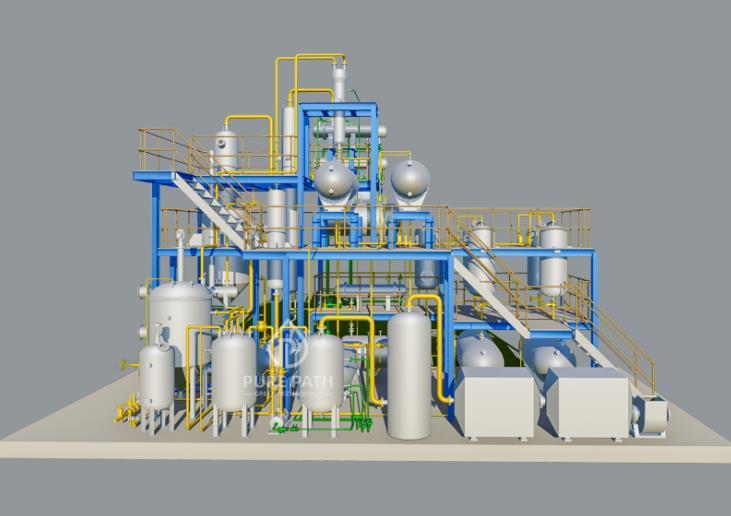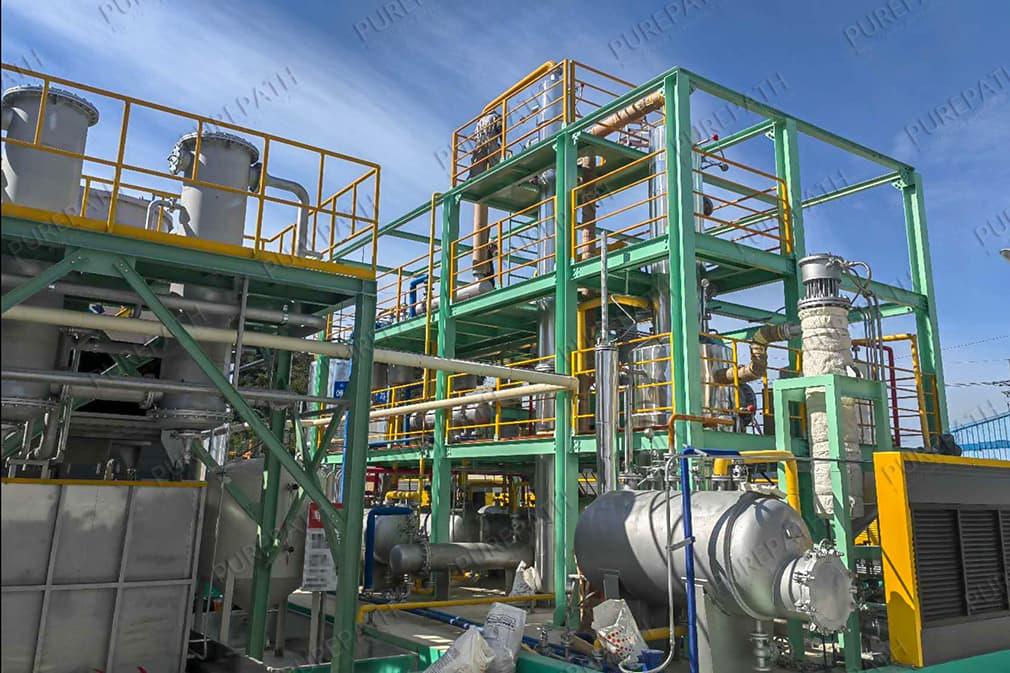Re-refining of Waste Oil Recycling: A Sustainable Solution

In today's world, where environmental concerns are at the forefront, the need for sustainable practices is more crucial than ever. One such practice that has gained significant attention is the re-refining of waste oil recycling. This process involves converting used oil into usable products, offering a multitude of benefits for both the environment and the economy.
Why Re-refining Matters
Waste oil, if not disposed of properly, can pose significant environmental hazards. It can contaminate soil and water, leading to the proliferation of harmful bacteria and the disruption of ecosystems. Moreover, improper disposal of waste oil can contribute to air pollution and the release of greenhouse gases.
Re-refining waste oil offers a viable solution to these environmental concerns. By transforming used oil into new products, it reduces the need for extracting and refining crude oil, thereby conserving natural resources and minimizing environmental impact.
The Re-refining Process
The re-refining process is a complex yet effective one that involves several stages:
1. Collection: Used oil is collected from various sources, including automotive repair shops, industrial facilities, and households.
2. Transportation: The collected oil is transported to a re-refining facility.
3. Pre-treatment: The oil undergoes pre-treatment to remove impurities like water, solids, and sludge.
4. Distillation: The oil is distilled to separate it into different fractions based on boiling point.
5. Hydrotreating: The oil is treated with hydrogen to remove sulfur and other impurities.
6. Dewaxing: The oil is cooled to remove waxes.
7. Blending: The oil is blended with additives to create the desired product, such as lubricants, asphalt, or fuel oils.
8. Quality Control: The oil is rigorously tested to ensure it meets quality specifications.
9. Packaging and Shipping: The re-refined oil is packaged and shipped to customers for various applications.

Waste Oil to Diesel Plant
In addition to re-refining waste oil into lubricants, asphalt, and fuel oils, waste oil can also be converted into diesel fuel through a process known as pyrolysis. Pyrolysis involves heating waste oil in an oxygen-deprived environment to break down its long hydrocarbon chains into shorter chains, effectively converting it into diesel fuel.
Waste oil to diesel plants offer a unique opportunity to utilize otherwise discarded waste oil as a valuable fuel source. These plants can process a wide range of waste oils, including used motor oil, hydraulic oil, and industrial lubricants. The produced diesel fuel can be used in a variety of applications, including powering diesel engines, heating systems, and industrial processes.
Benefits of Waste Oil to Diesel Plants
The benefits of waste oil to diesel plants extend beyond environmental protection and resource conservation:
1. Economic Benefits: Waste oil to diesel plants can generate revenue by selling the produced diesel fuel.
2. Energy Security: These plants contribute to energy security by providing an alternative source of diesel fuel, reducing reliance on imported crude oil.
3. Waste Reduction: Waste oil to diesel plants divert waste oil from landfills and improper disposal, reducing environmental pollution.
4. Job Creation: These plants create employment opportunities in the waste management and renewable energy sectors.
Conclusion
Re-refining waste oil recycling and waste oil to diesel plants represent significant steps towards a more sustainable future. By transforming waste oil into valuable products, we not only protect the environment and conserve resources but also contribute to economic growth and energy security. As environmental consciousness and technological advancements continue to evolve, these sustainable practices are poised to play an increasingly important role in reducing our reliance on fossil fuels and promoting a more environmentally friendly future.
- Art
- Causes
- Crafts
- Dance
- Drinks
- Film
- Fitness
- Food
- الألعاب
- Gardening
- Health
- الرئيسية
- Literature
- Music
- Networking
- أخرى
- Party
- Religion
- Shopping
- Sports
- Theater
- Wellness


